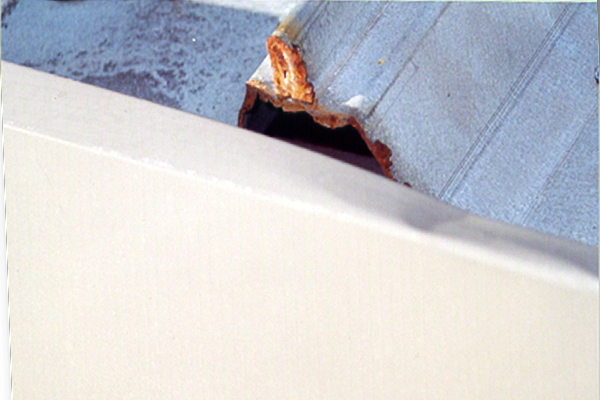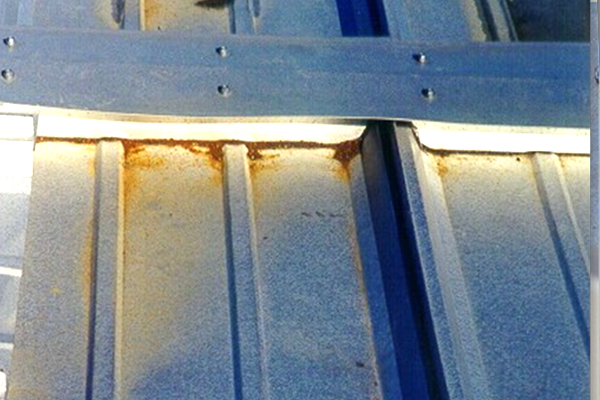Metal building panels, whether for roofing or walls, are manufactured with a long-lasting and durable finish of different types and in many colors, allowing the panels to hold up and look great for decades. However, once they get to the building they may need to be cut to fit a field condition, or they may need to be cleaned either during or after installation for any number of reasons. Innocently doing either, without understanding that doing it the wrong way could compromise the integrity of the finish, can be disconcerting at best or warranty-buster at worst. Here are a few tips for the proper cutting and cleaning of metal panels.
Cutting Metal Panels:
Field cutting of panels is certainly allowed and acceptable to manufacturers and is common, particularly at framed openings. However, there are two things to pay attention to here:
- Cutting Method: If field cutting is required, the panels must be cut with nibblers, snips or shears to prevent edge rusting. Do not cut the metal panels with saws, abrasive blades, grinders or torches. Abrasive saw blades, grinders and torches can leave irregular or rough edges that are no longer coated or finished, thus causing rust and corrosion.

- Cutting Location: All cutting of metal will produce fine particles, or swarf, that will fall from the cut. If this swarf falls on the roof, it can cause permanent staining and, if enough of it accumulates in one place, it could rust completely through the metal roof panel. Therefore, never cut metal panels on the roof or over other metal panels. It is best to cut the panel down on the ground where the swarf can be captured and disposed of.

Cleaning Metal Panels:
Metal panel manufacturers will usually provide information and directions for cleaning. A typical set of cleaning recommendation follows, based on a progression of cleaning levels—start with number 1 and work your way down the list for tougher jobs.
- For simple cleaning, water and mild detergent will often be all that is needed. However, bleach should never be used, since it can change the finish color or interact disastrously with certain metals.
- For water-soluble dirt or other deposits requiring more complete cleaning, a solution of hot or cold water mixed with detergent is appropriate. In a container of water, use a 5 percent solution of commonly used commercial (non-industrial, non-bleach) mild detergent, so as not to have any deleterious effect on the painted metal surface. Use a cloth or a soft-bristle brush for application of the cleaning solution, followed by an adequate rinse with clean water. Alternatively, pressure-washing with a 40° tip is also an option.
- For non-water-soluble deposits such as tar, grease, oil and adhesives, a solvent or alcohol-based cleaner may be required. In this case, since most organic solvents are flammable and/or toxic, they must be handled accordingly. Generally, keep them away from open flames, sparks and electrical motors. Use adequate ventilation, protective clothing and goggles, and read the manufacturer’s Material Safety Data Sheet (MSDS) of any solvent used for any other specific safety details. The following are among the cleaners recognized by manufacturers for this type of non-water-soluble cleaning:
- Alcohols
- Denatured alcohol (ethanol)
- Isopropyl (rubbing alcohol)
- Solvents
- VM&P naptha
- Mineral Spirits
- Kerosene
- Turpentine (wood or gum spirits)
- Alcohols
Regardless of the level of cleaning required, never use wire brushes, abrasives, or similar tools that will abrade the surface coating and leave scratches or other finish damage and lead to corrosion. Further, keep in mind that any misuse or abuse of any of the acceptable cleaning agents will automatically void any manufacturer’s warranty for the affected surfaces.
By using the tips above to properly cut and clean metal panels, installers can avoid the problems of corrosion, staining or other surface damage. Thus, the integrity and beauty of the finish is maintained without any impact on the warranty. To learn more about metal panel finishes, cutting, cleaning and warranties, contact your MBCI representative.